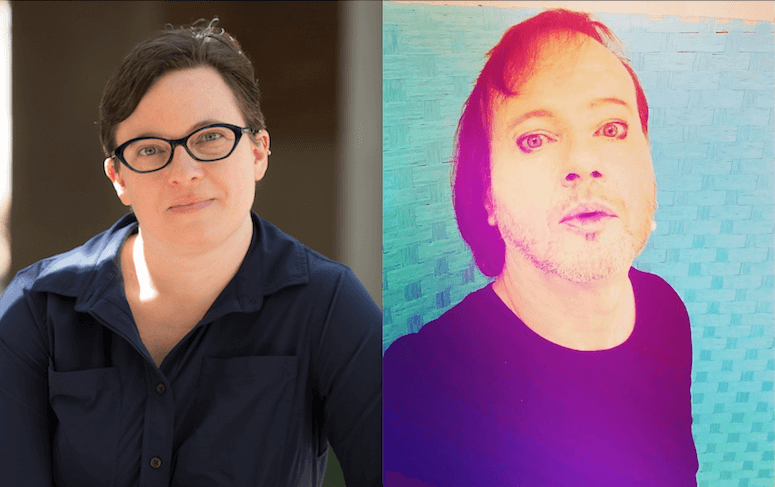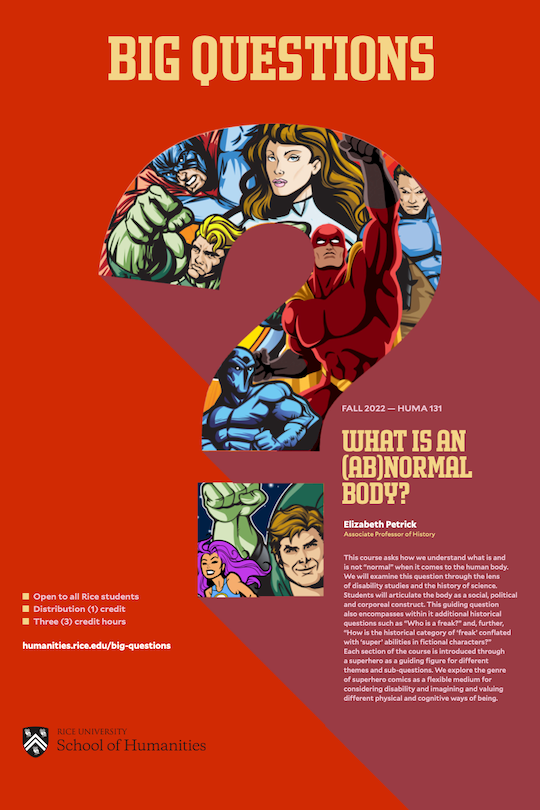
Each semester’s slate of Big Questions courses offered by the School of Humanities starts students’ minds churning over thought-provoking topics. So this fall’s offerings are no surprise: one promises to spur Rice scholars to think critically about what makes bodies normal as opposed to abnormal, while the other course will push students to examine just what, exactly, is a fact.
The first course — What Is An (Ab)normal Body? — will be taught by associate professor of history Elizabeth Petrick. The second — What Is A Fact? — will be taught by Timothy Morton, the Rita Shea Guffey Professor of English.
Big Questions course subjects vary wildly, but each class shares a common goal: exposing students to the thought-provoking, inherently interdisciplinary world of humanities education at Rice. In recent years, they’ve been some of the university’s most sought-after courses, often filling up quickly with eager Owls flocking in from a plethora of majors and academic backgrounds.
“I’m interested in the ways that the idea of what is normal is created by society in different historical contexts and, as such, is always subjective and changing,” said Petrick of her What Is An (Ab)Normal Body? course.
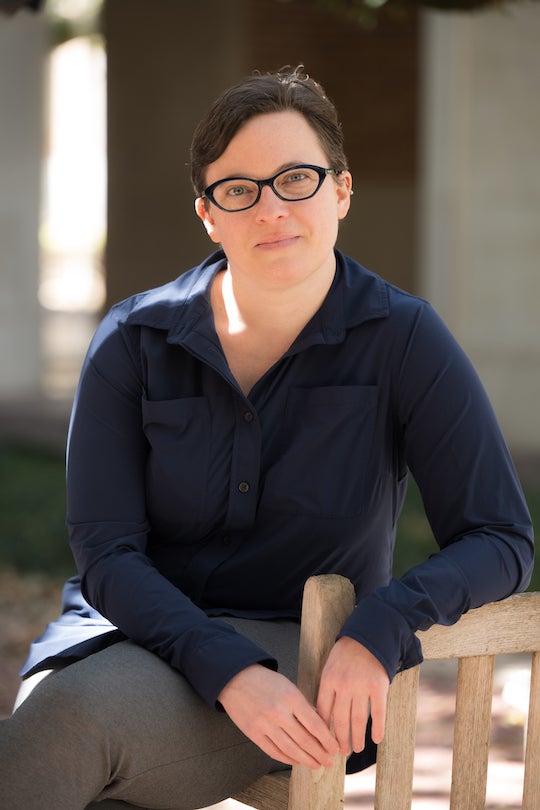
Petrick’s research interests include the relationship between technology and users with disabilities and how technology relates to civil rights. Societal concepts about what is — and isn’t — “normal” have pervasive impacts on people’s day-to-day lives, especially when those ideas are projected upon our own bodies, Petrick explained.
In the class, Petrick will guide students to examine those notions through the history of science and medicine, incorporating disability studies literature. Petrick will also introduce students to relevant issues in eugenics, bodily sense, cyborg theory, reproduction, gender, mental illness, "curative" technologies, aesthetics and race.
Another concept Petrick’s students will delve into is how the category of the “freak” is oftentimes conflated with superpowers in fiction. Each section of the course will examine a different pop culture superhero, including Captain America, Hawkeye, Cyborg, Deadpool, Cable, Nightcrawler and Scarlet Witch.
Bodies are a particularly fraught area to talk about norms, as people are regularly discriminated against based on the bodies they have,” Petrick said. “I’m hoping that students will come out of the course with knowledge of how the idea of the normal body has changed over time and with greater appreciation for the diversity of human bodies, including their own.”
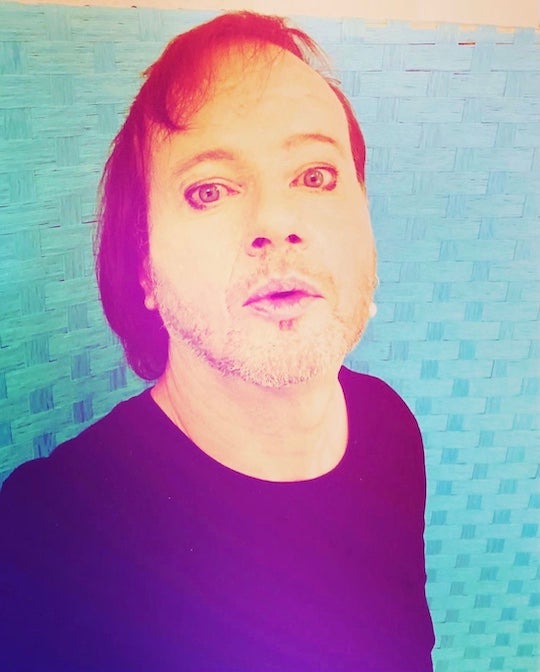
Morton considers What Is A Fact? course lessons pivotal for understanding life in 2022, given the rise of “alternative facts” and misinformation that have supported resurgent fascist movements and dangerous cults like QAnon.
“I’m going to teach you that if you don’t study the nature of facts, you won’t survive in the modern world,” Morton said. “This is the real STEM class. In the first five minutes of class one, you will understand why, and you will never forget it.”
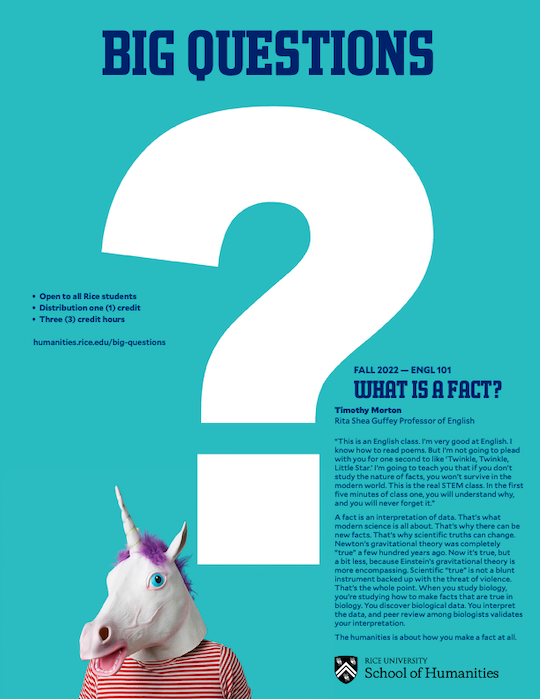
An environmental philosopher, Morton is known for coining the term “hyperobject” to describe things so massive and distributed across space and time they’re nigh-impossible to fully comprehend — for example, capitalism, global warming and all of the plastic created in human history. Morton hopes students will come away with a better understanding of how “facts” don’t exist simply as standalone, self-evident truths, but are the result of active, collaborative processes and efforts to distill and explain the world around us.
“When you study biology, you’re studying how to make facts that are true in biology,” Morton’s course description reads. “You discover biological data. You interpret the data, and peer review among biologists validates your interpretation.
“The humanities is about how you make a fact at all.”
Course registration for the fall 2022 semester begins March 25. For more information on Big Questions courses, visit humanities.rice.edu/big-questions.

